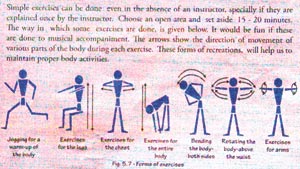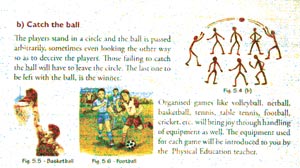Nervous breakdowns and suicides are some of the tragic consequences while cut-throatism and envy not only among children but even among siblings and also school drop-outs are the fallouts of the current education system.
This is the verdict of the panel of eminent doctors who have dissected the school education system after being confronted with many a child who has some health issue without a diagnosable illness.
Pothe nemethi ugule patalila, peedanayata pathwela, says Consultant Neurologist Dr. Nilupul Perera succinctly explaining that children are under pressure because they are caught in the trap of books in an unjust education system and expected to perform beyond their capacity.
What is the purpose of education?
The answer is simple, according to Dr. Perera. It is to create a rounded personality, whatever the field that he/she goes into. A person who is not only intelligent and knowledgeable but also developed physically, mentally, spiritually and culturally and is emotionally controlled……a person who interacts well socially with others.
But what is our current education system producing?
Children may be gaining a little bit of knowledge being with their books all the time, though even that is doubtful, but at the cost of other factors essential for the development of a holistic human being, stresses Dr. Perera.
The imagery comes out very clearly, when this Neurologist compares the brain to a kalaya (pot) and knowledge to water. “When you pour water into the pot it retains it unless you are so foolish as to fill it to overflowing and keep filling it ultimately maybe putting such pressure that the pot becomes porous, making the water flow out not only from the mouth but also from these holes,” he says.
| Do you have something to say? |
Calling on children, parents, teachers, principals, educationists and all those interested in the welfare of children to write in with their views on the current system to: 'School Education', The Sunday Times, 8 Hunupitiya Cross Road, Colombo 2 or e-mail to: schooledu@sundaytimes.wnl.lk
Your views, opinions and suggestions on this crucial issue will be published in the Sunday Times of next week. |
Dealing with how the brain retains knowledge, he says there are two systems – short-term memory and long-term memory. Any knowledge is most useful only if it is stored in the long-term memory to be used whenever required.
Whatever knowledge is introduced to the brain through the teaching of facts needs to be studied over and over again. The knowledge thus imbibed must be analyzed, re-analyzed and then reorganized. For all this, time is of essence for the knowledge to be assimilated and stored in the long-term memory, the Sunday Times learns.
If not, the knowledge will not be retained in the long-term memory and be like the pot with the holes or the brain without the long-term memory.
“If a child is interested in a particular fact he must be allowed to read up more on that. Give the theory part and let the children check it out practically. This rule applies to all, be it science where the practical aspect comes through experiments, if arts through singing, dancing, playing an instrument,” he says pointing out that if learning about nature, children should be allowed to kelle ringanna (go into the forest).
If it is mathematics, a child must develop on the principles taught by doing sums over and over again, he says.
If Isaac Newton lived in this era in Sri Lanka and went to a local school, the world would never have got the Theory of Gravity. He came up with the principle on the pull of gravity when he saw with his own eyes an apple falling from a tree and wondered why it was not going up but down.
What is happening now? There is simply no time for the practical aspect because the books are so packed with information and facts that the child can only bury his/her head in them.
The information in all the books for all the subjects that the child has to study is way too much for the time spent in school. Children cannot take all this information in. Teachers are unable to cover the lessons within the stipulated time. The whole of the class time is taken up with teachers attempting to drill in a vast quantum of information into tiny brains. Diye ande era wage……….like a line drawn on water, he says.
A futile exercise because there is no time for the information overload to go into the long-term memory, the Sunday Times understands.
This is the system teachers are compelled to promote, principals to fortify and parents to work with to ensure that their children achieve that dream of “success”.
Take the plight of the parents, who have finished their education and are holding jobs in various fields, contributing to national development. What are they doing now, asks Dr. Perera, answering without hesitation that they have once again “gone back to school”.
From the time their son or daughter begins at Grade 1, parents too are back in the classroom. They take leave and time off to hang around the school gate or the tuition class, discussing with other equally-harassed parents about the best teachers for tuition, the best extra-reading books and the best past papers.
The doctors request educationists to visit any tuition class and see for themselves the time “wasted” by parents away from work or household chores, while they tag along and spend long hours at tuition classes.
Urgent need to evaluate syllabus
The priority right now is to screen the curricula and the syllabi as against the time available in the classroom per subject and the absorption capability of children of a particular age.
Is there a structure to all the lessons? Are all the details in a particular lesson vital for the child’s development of knowledge? What is the purpose of teaching these details? What is the purpose of the syllabus?
These are the issues that need to be addressed, the panel of doctors reiterates.
Consultant Neurologist Dr. Nilupul Perera cites the example of the subject of Physical Education. Many are the lessons on the different physical activity that children are taught -- cricket, basket ball, swimming, the list goes on. The topics are very good, comparable to any taught in America.
“Stick figures are meticulously drawn in different positions in the textbook,” he smiles, but do the children actually go to the field or the swimming pool.
Can you learn to ride a bike or swim by reading a book, he asks simply.
Please evaluate the system and change it, the doctors appeal.
 |
| Physical education meticulously
illustrated with stick figures |
 |
|
